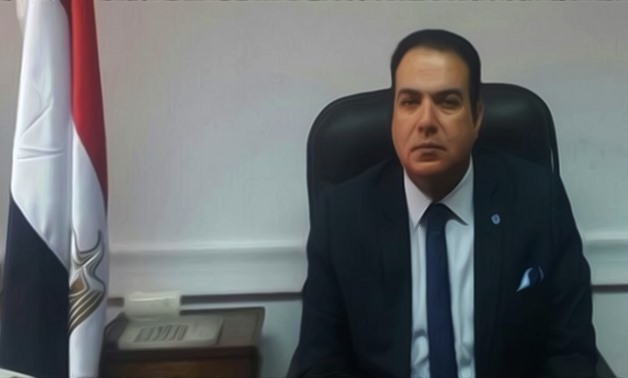
File- Head of the Egyptian committee tasked with seizing the funds of the banned Muslim Brotherhood group, Mohamed Yasser Abo El-Fotouh - press photo
CAIRO – 12 September 2018: The Egyptian state committee tasked with confiscating and managing the funds and assets of members of the banned Muslim Brotherhood (MB) on Tuesday decided to seize the assets of 118 entities due to alleged links with the MB, and ordered transferring them to the state treasury in accordance with a new law.
Among the affected entities are SMS Technology, Computek International, and Egyptian Group for Manufacturing Investments - Ceramica Prima. The total confiscated funds included liquid and movable properties, shares and bonds of nearly LE 60 billion.
According to Article 11 of law no. 22 of this year, whenever a court verdict is final and rules on the management of assets, the committee has the right to transfer the ownership of the seized funds to the state treasury, if the committee requests permission from the relevant court.
The committee's resolution to transfer funds applies to 1,589 individual Brotherhood members and supporters, 118 companies, 1,133 NGOs, 104 schools, 69 hospitals and 33 websites and satellite channels that are under the control of the committee, a statement read.
The Muslim Brotherhood was designated a terrorist group in December 2013. According to the terrorist entities law, individuals included on Egypt’s terrorist list are not only liable to have their assets seized but are prevented from travel and are placed on a watch list in case those abroad try to enter the country.
CAIRO-16 April 2018: The Parliament initially approved during its plenary session, held on Monday, the government-drafted law to regulate the legal procedures to seize, manage and dispose terrorist organizations' assets. In the plenary session, the Parliament discussed the report on the draft law made by the Legislative Affairs Committee and the National Defence Council, which initially approved the draft law on Sunday.
Under the most recently passed law, once an individual or organization is placed on the terrorist list, a designated committee may submit a request, pro tempore, for their assets to be seized. The same committee, first formed in 2013 to “manage Muslim Brotherhood assets,” is also tasked with enumerating all assets related to asset seizure rulings.
Appeals against seizure orders may be submitted to a court of urgent matters. However, if the court rejects the appeal, its decision is considered final.
The committee, formed in 2013, is headed by the head of the Cairo appeals court, Mohamed Yasser Abo El-Fotouh, and includes representatives of the ministries of interior, finance, social solidarity, and local development, as well as representatives of the Central Bank of Egypt, the National Security Apparatus, and several other entities.
Egypt's current terror list contains around 2,000 names, including top Muslim Brotherhood leaders convicted of violent crimes.
These include: ex-president Mohamed Morsi; Brotherhood spiritual leader Mohamed Badie; owner of the Juhayna dairy company, businessman Safwan Thabet; and Wasat Party chairman Abul Ela Mady.

Comments
Leave a Comment